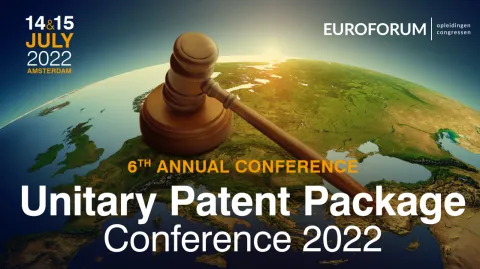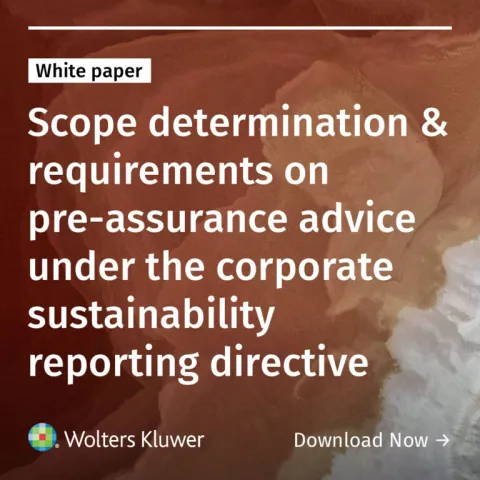UPC: Likely opening date March 2023, Milan the new London?
July 15, 2022
The first of March 2023 seems to be a likely date the Unified Patent Court will open its doors.
This became clear yesterday during the Unitary Patent Package Conference in Amsterdam. On the same day, the UPC Administrative Committee announced on its website that ‘the timing of the start of operations of the Court can reasonably be expected to occur in early 2023’. During the conference March was repeatedly mentioned as a possible starting moment for the UPC.

The recruitment of judges is well underway, Karcher said. After interviews with about 200 candidates between March and May in Luxemburg, Paris and Munich, the Advisory Committee drew up a list with most suitable candidates comprising twice the number of posts. It was presented to the Administrative Committee on 8 July 2022. A total of around 40 legally qualified judges and 50 technically qualified judges will be selected, in the beginning mostly part-time. Once a final list is adopted, the candidates will be offered employment and, after formalities such as a health test, likely be appointed in September. As a next step, a president of the Court of First instance and of the Court of Appeal will be elected, the presidium of the UPC formed and the registrars appointed. The judges will receive comprehensive training, including the electronic case management system (CMS) and the Rules of Procedure.
Rules of Procedure
An important moment during the meeting of 8 July was the adoption of the final version of the Rules of Procedure, just weeks after getting the consent of the European Commission (22 June 2022). They have not yet been published. As to a consolidated version of the Rules of Procedure, following legal scrubbing, they will be published during the course of the summer, before their entry into force on 1 September 2022’, can be read on the UPC’s website.
At the Amsterdam conference, several changes of the RoP were explained, such as the introduction of the possibility of full oral hearings by videoconference (Rule 104, 112), a lesson learnt from the covid pandemic. There is a new Rule 5A, providing for an application to remove an unauthorised application to opt out or unauthorised withdrawal of an opt-out.
Opting out of the jurisdiction of the UPC sounds like a simple procedure, but this is not always the case, several experts at the conference warned. For instance, an opt-out must be signed by all proprietors in up to 38 EPC states in order to be valid. This must be carefully checked, as the UPC doesn’t do this and a mistakes may only come to the surface when a patent is litigated.
Most significant and much debated in the final version of the Rules of Procedure were the changes in Rules 262 and 262A, concerning public access to the register. Article 262.1 now reads: ‘(a) Decisions and orders made by the Court shall be published. (b) written pleadings and evidence lodged at the court and recorded by the Registry, shall be available to the public upon reasoned request to the Registry. The decision is taken by the judge rapporteur after consulting the parties.’ Under conditions which are detailed in the articles, a party may request that information is kept confidential or only a restricted number of people will be allowed to see it.
Milan the new London?
At the UPP Conference, there was also interesting news about the life sciences branch of the UPC’s central division, which will not be established in London due to the Brexit and the UK’s departure from the UP project.
Milan now seems to be a serious candidate for housing a section of the central division, according to an observer who is close to the process. He said the city of The Hague has lobbied hard to secure the division over the last year. But apparently, in a meeting of Dutch prime minister Mark Rutte with his Mario Draghi earlier this year, Rutte unexpectedly told his Italian colleague that the Dutch would give up their aspirations, which left Milan – which has claimed the division since long - as a favorite candidate.
What consequences this will have is not entirely clear. The UPC’s Administrative Committee has so far only indicated that ‘London cases’ can be divided temporarily between the central divisions in Munich and Paris, as long as there is no agreement about the future of the London division.
Confidence
The advantages of the UPC as a ‘one stop shop’ were stressed several times during the conference, but it is clear that the court will have to gain confidence among (parts of) the industry. However, don’t think the Unified Patent Court will have little work once it opens its doors, one patent litigator predicted. He expects a ‘midnight avalanche of cases’, the moment the UPC starts functioning. And indicated he is working on some of these himself.
You may also like














Sceptical observer
On Rule 5A: who is eligible to lodge an application to remove an unauthorised opt-out (or unauthorised withdrawal of opt-out)? And in what circumstances will that be possible? Actions purely concerning the validity of opt-outs and their withdrawals are not among the list of exclusive competencies provided by Article 32 UPCA. On what authority can the validity of an opt-out (or its withdrawal) be reassessed once it has been registered? Why is the consent of proprietors in all 38 EPC countries required for an opt-out? What business is it of the proprietors in countries that will not (and will never be) part of the UPC system? In cases where all the proprietors are subsidiaries of the same parent company, or within the same group of companies, then getting this consent might not be too difficult, but in many cases there might not be such a relationship. Why do the UPC-country proprietors need to go chasing after the non-UPC country proprietors for their consent in that type of situation? This is just another bureaucratic headache for no apparent reason or benefit.
Andre Frans
"such as the introduction of the possibility of full oral hearings by videoconference" This is contrary to the decision of the French Constitutional Court, as mentioned by some observer in the EPO VICO case.